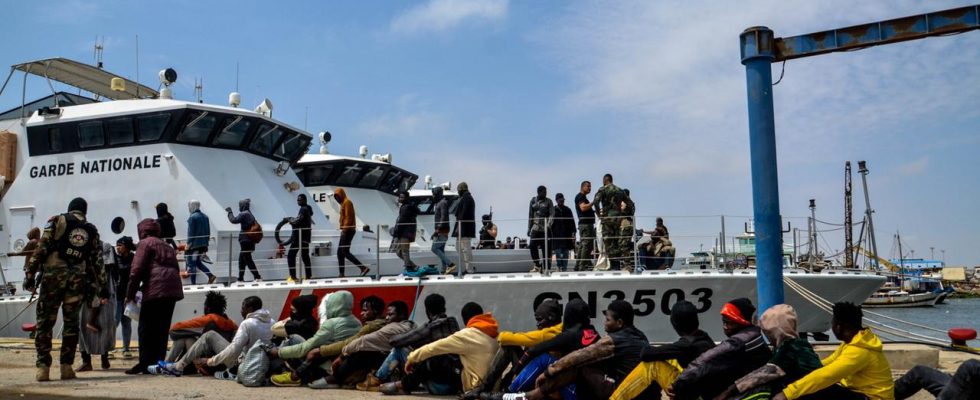Two months after the conclusion of the EU migration agreement with Tunisia, the number of refugees remains high. The European Parliament is not sure: can the agreement even work?
Is the EU’s migration agreement with Tunisia a dirty deal? Europe is promising the authoritarian country hundreds of millions of euros to curb the flight across the Mediterranean. This agreement was controversial from the start. Now the European Parliament is asking itself the question: Is it possibly useless?
Refugee numbers continue to rise
Jeroen Lenaers, Dutch Christian Democrat and member of the EPP group, says it has now been two months since the signing ceremony. “And we don’t see any results, illegal migration continues to increase and nothing has changed on the ground in Tunisia.” The urgency with which this partnership was agreed was an important signal that Europe is taking the migration crisis seriously. “Now we also have to see urgency in implementation.”
In concrete terms, this means that the number of refugees via the Mediterranean route should decrease. But the opposite is true. According to the Italian Interior Ministry, around 7,400 migrants arrived irregularly from Tunisia to Italy in the week after the memorandum was signed alone – more than ever before in a week. And the numbers continued to rise.
Questions about dealing with Tunisian rulers
So should the agreement be implemented more forcefully – or should we prevent further EU millions from being lost in Tunis? The latter, says FDP MEP Jan Christoph Oetjen. He is fundamentally in favor of migration agreements with third countries – but against this one with the current Tunisian president.
“Is Kais Saied a reliable partner for the European Union? I don’t believe that,” said Oetjen. “Just six days ago, opposition members were arrested again in Tunisia. Judges are being dismissed so quickly. Can someone be a good partner who simply abandons migrants in the desert to Libya without water? I don’t think this agreement works that way.”
What exactly can and what should this agreement achieve?
At least it is clear that the Tunisian ruler is as unimpressed by a good 100 million euros in EU money for border protection as he is by the prospect of further loans. Because he has found other donors: Saudi Arabia, for example, is providing half a billion dollars in loans to cash-strapped Tunisia without imposing such conditions.
This makes it all the more clear to the EU Parliament that it needs to be specified exactly what this agreement can and should achieve, demands Birgit Sippel, the migration policy spokeswoman for the European Social Democrats.
Some of the questions that need to be addressed, in her opinion, are: What is the legal basis? Who approved money – and for what? How should the EU support and train Tunisian border officials? What does this mean for people seeking protection on the border with or in Tunisia? And: Is this how the EU outsources pushbacks? “This deal is vague, not very meaningful, and a lot of things haven’t been worked out yet,” said Sippel.
Appeal to von der Leyen
She appeals to the head of the EU Commission: “Ms. von der Leyen must explain in detail what the specific basis and goals are for such deals, and how we ensure compliance with our values and international law when using taxpayers’ money.”
After all, the agreement with Tunisia is intended to be a blueprint – a first example of migration agreements with other countries in the region in order to limit and control immigration into the EU. But even after two months there is still an answer to the question: Can this work?

